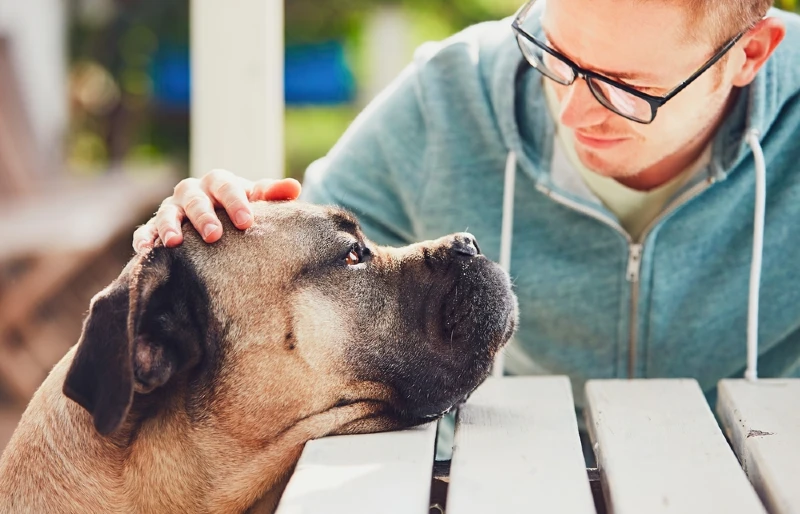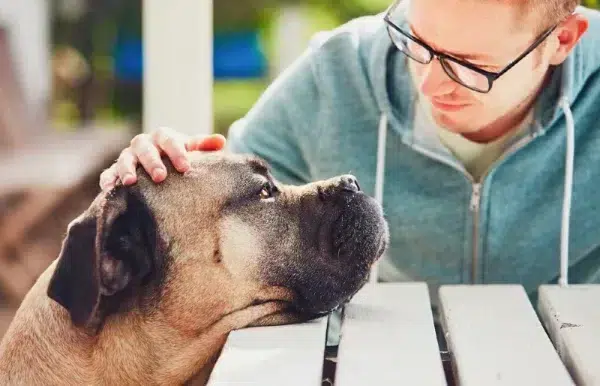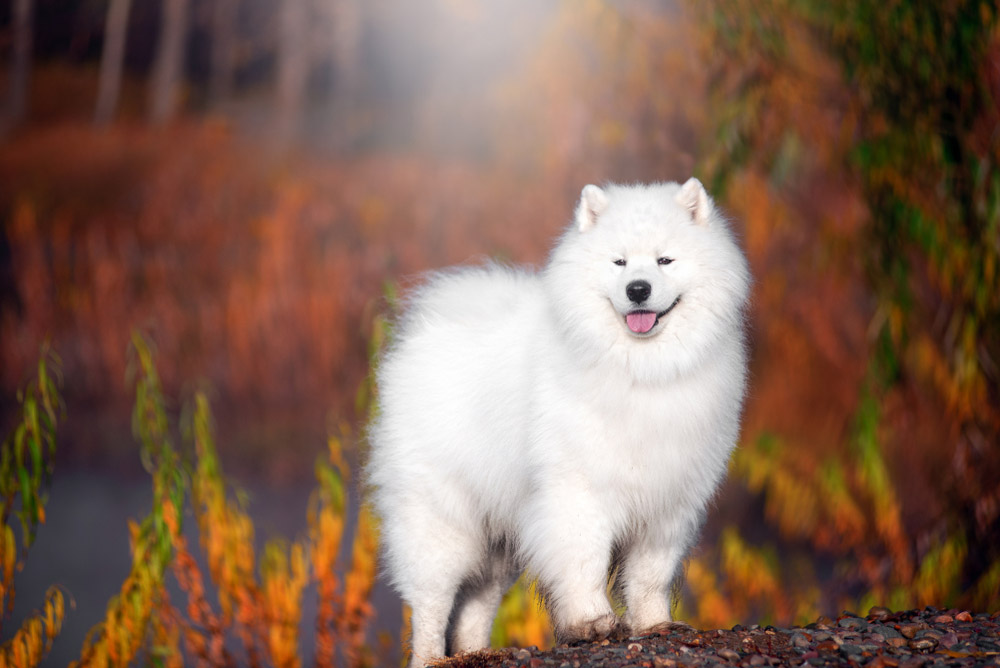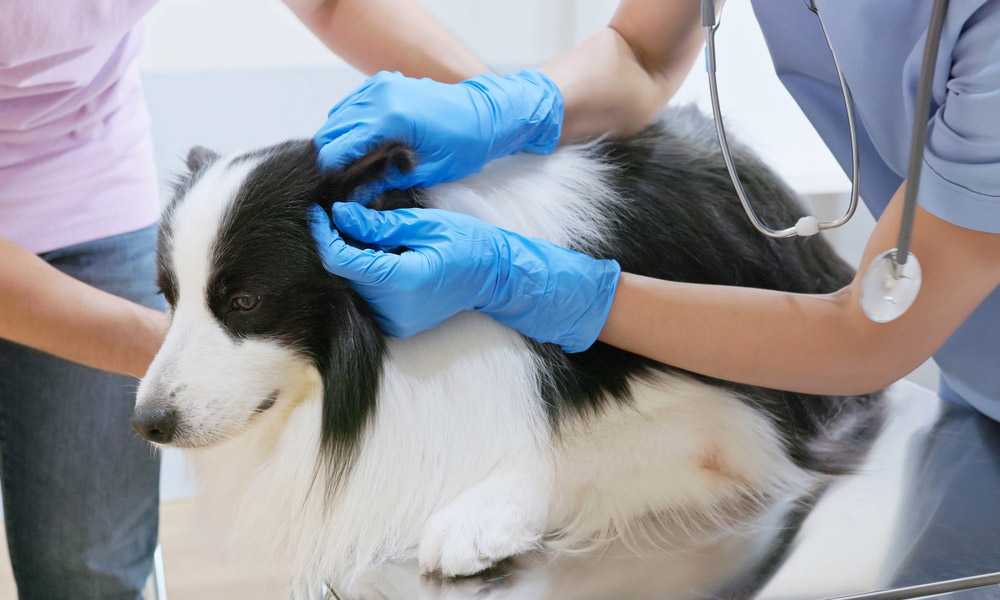Dogs might have thick skulls, but this doesn’t mean they are free from the risk of head trauma. Concussions are among the most common head injuries that dogs can experience. They can be difficult to diagnose but are often caused by car accidents, falls, and fighting with other dogs.
Understanding the severity of your dog’s head injury and recognizing the signs of a concussion will go a long way toward ensuring that they receive quick treatment. If your dog has sustained a head injury, this guide will help you determine whether they have a concussion and when a trip to the vet is necessary.
What Is a Canine Concussion?
Canine concussions are similar to human concussions, though it can be much harder to determine whether your dog has one. A concussion is a traumatic brain injury that occurs when the brain is jostled inside the skull.1 This can be caused by a direct blow to the head or a sudden impact that jars the brain, even if the head isn’t hit directly. In both cases, the brain collides with the skull.
As with most health problems facing dogs, early diagnosis and treatment can help prevent worse signs from developing. Serious concussions and other head injuries can quickly lead to severe neurological problems like seizures if they’re not treated quickly. With fast diagnosis and effective treatment, your dog will make a full recovery.
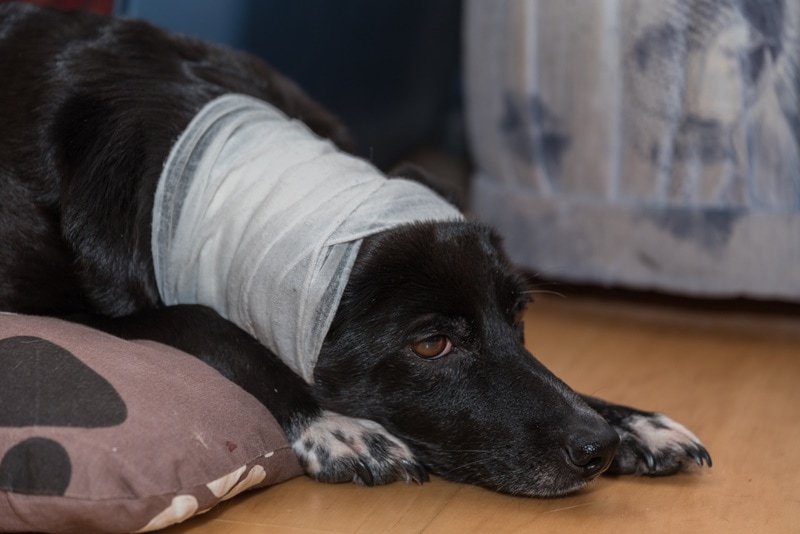
What Causes Concussions in Dogs?
Dogs might have thicker skulls than we do, but this doesn’t make them impervious to head injuries. There’s always a risk that your dog can get hurt; a concussion is a potential outcome and one of the most common types of head traumas in dogs.2
Your dog might get a concussion in several different ways. Car accidents and falls are among the most common, especially if the dog runs away when they’re outside or isn’t supervised properly.
Roughhousing with other dogs is also a frequent cause of concussions, even if your dog is only chasing their friend around the garden. A sudden collision during playtime can lead to a few scrapes and bruises and more serious issues like concussions.
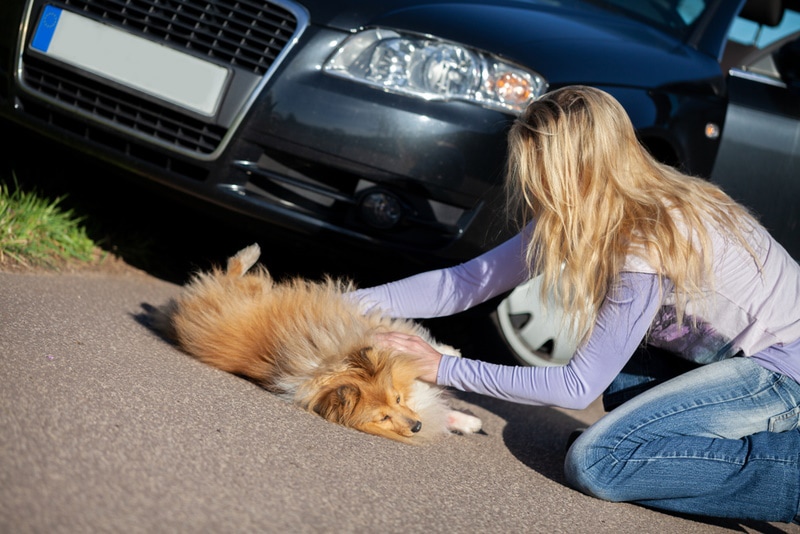
Signs That Your Dog Has a Concussion
When a human is suspected of having a concussion, they’re asked a routine list of questions revolving around common knowledge, such as the date and the person’s name, and determining how much the person remembers of the accident.
Unfortunately, diagnosing a concussion in dogs isn’t nearly this easy, as they don’t have the capability of human speech or understand the questions that we’d need to ask. Instead, you need to pay close attention to other signs that your dog might exhibit after the accident.
If you know that your dog has recently suffered a head injury or had an accident that could lead to injuries that aren’t obvious, it’s important to monitor them. You’ll need to watch their behavior for any signs of injuries after the accident, even if they appear to have gotten through the event unscathed.
Common signs that your dog is suffering from a concussion include:3
- Unconsciousness
- Unreactive pupils
- Different pupil sizes
- Trouble balancing or walking
- Rapid eye movement
- Confusion
- Seizures
- Lethargy
Concussions can result from serious head injuries and require medical attention to prevent them from causing severe problems later. If your dog has had an accident and shows any of these signs, you’ll need to get them to your closest emergency vet as soon as possible.
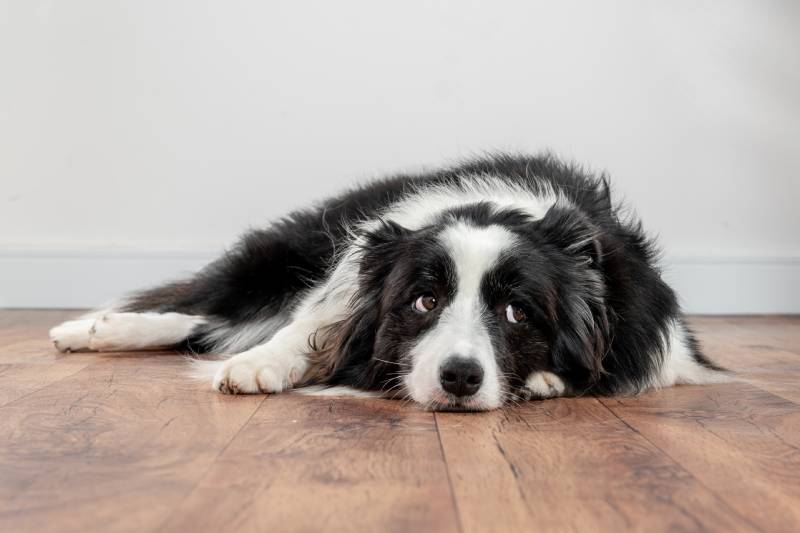
The 3 Tips What to Do If Your Dog Has a Concussion
Proper treatment of your dog’s injury starts before you even reach a veterinarian. You have to keep a few things in mind when you’re helping your dog, to ensure that you don’t get injured yourself or cause further damage. In emergencies, stay calm and remember the following tips.
1. Assess the Situation
The first reaction when someone you love gets hurt is to rush over and help. Unfortunately, this can lead to you getting injured too, which will hinder your ability to offer assistance. Staying calm and assessing the situation is your priority.
If your dog has been hit by a car, make sure the road is clear before trying to get your dog out of harm’s way. The same is true if they’ve fallen off something or gotten into an altercation with another dog. You need to make sure you don’t fall yourself or end up scaring the other dog, which might be just as hurt as yours.
In many cases, asking a friend to help you is the safest step. They’ll be able to warn cars to slow down or tend to the other dog that might have been hurt during a play session. Only move your dog once you know it’s safe to do so, and there’s no risk of making other injuries worse.
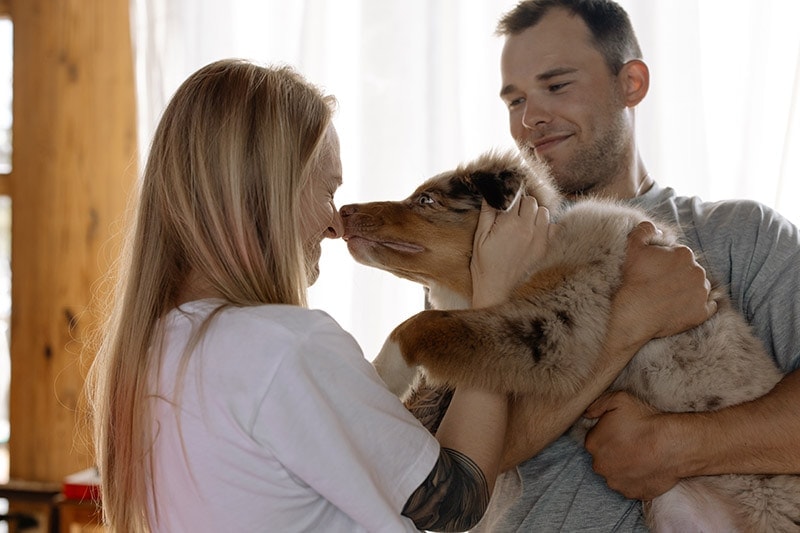
2. Find Out If They Are Conscious
An obvious sign of a concussion is unconsciousness. You must go to a vet immediately if your dog loses consciousness after an accident. They might be unconscious for a few minutes or longer, but you’ll need to know if there are lasting injuries. A vet will be able to determine the severity of their injuries, provide treatment, and help your dog recover.
3. Keep Them Calm
If your dog doesn’t lose consciousness, your best bet is always to have your dog assessed by their vet. When you travel to the vet, ask a friend for help, and keep your dog as still as possible. If you can, remove their collar or anything else that might restrict their neck or head.
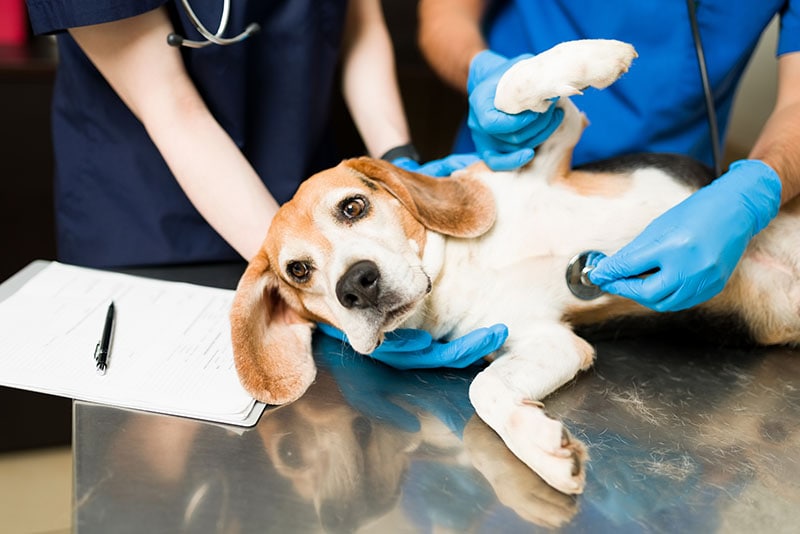
How to Prevent Concussions in Dogs
Accidents aren’t always avoidable and can happen even if you are as careful as possible. Injuries can occur before you even realize that your dog is in trouble. That said, you can reduce the chances of your dog getting severely injured by taking certain precautions.
Preventing car accidents is often a case of ensuring that your yard is surrounded by a sturdy fence and that the gates are kept shut at all times. You also need to teach your dog to walk politely on a leash and to ignore the urge to chase wildlife or cars. Whenever you’re outside the home, your dog should be leashed, even if the road that you’re walking down is quiet.
To prevent falls from heights, you’ll need to have guard rails. If these are spaced too far apart, consider using safety fencing or chicken wire to prevent your dog from slipping through the gaps.
As for avoiding fights or roughhousing with other dogs, make sure your puppy is socialized properly. Teaching them how to interact with you and other animals is an essential part of their growth.
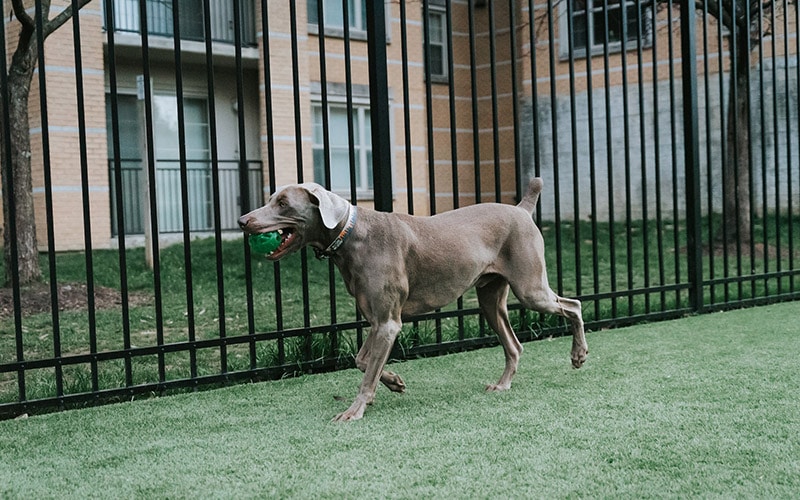
Conclusion
If your dog has an accident, a concussion is a potential injury that they can sustain. It can be caused when their brain collides with their skull. Not all head injuries will cause a concussion, and minor cases might not need treatment by a veterinarian, but you do need to be alert for any signs that require emergency medical treatment.
Unconsciousness, seizures, disorientation, dilated or uneven pupils, and rapid eye movements are all signs that your dog might have a concussion. For safety and to ensure full recovery, take your dog to a vet right away.
Featured Image Credit: Jaromir Chalabala, Shutterstock

